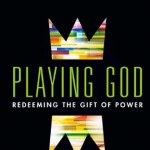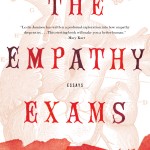Following a catastrophic nuclear attack, fifteen-year-old Eli has spent the past six years living in an elaborate underground compound with his parents and siblings–minus his twin brother, who happened to be separated from the rest of the family when the first nuclear warheads were launched. Ever the sucker for dystopian and speculative fiction, I found the premise of S.A. Bodeen’s young adult novel The Compound too good to pass up when I stumbled across it a couple weeks ago.
Thanks to the meticulous advanced planning of the eccentric billionaire-CEO father, Mr. Yanakakis, the family has lived in complete isolation in their well-stocked and luxurious underground stronghold (which has — among other amenities — a home theater, a library, and a ballet studio) while they wait for the radiation levels to reach safe-enough levels for them to return to whatever remains of the world aboveground. Lately, though, Eli has been getting a funny feeling that there never was a nuclear war and that Mr. Yanakakis may have made the whole thing up (spoiler alert: Eli is right and dad is totally bonkers).
With Eli’s growing realization that the father who had seemed to be their savior may in fact be a dangerously unstable lunatic, the book could have been a claustrophobic, tightly wound thriller. With Eli’s twin abandoned on the surface, it might have been a thoughtful exploration of survivor’s guilt and loss in the wake of an apocalyptic disaster. With the family living underground in close quarters and total isolation for years on end, it might have been a tense study in psychology and human nature.
Unfortunately, The Compound is none of these things.
As a thriller, it’s mediocre at best, sabotaged by more plot holes than the Hunger Games has dead tributes. For example, it takes Eli years to realize that brand new music and upgraded technology mean there must be a functioning world beyond the compound. When the family first sought refuge in the compound, three of the four Yanakakis children–Eli and his two sisters–made it to safety, leaving the other twin, Eddy, behind. Since then, Mrs. Yanakakis has given birth to three additional children and is pregnant again. For the moment, let us set aside the fact that she has carried several extremely high-risk pregnancies to term with zero prenatal care and successfully given birth alone without any medical intervention each time (I suspect the author must not have given birth, because as a recent new mother, I was wigging out about these details).
The most disturbing thing about these new siblings is that Eli has deliberately avoided having any contact with the children at all since they were born.
Because the idea of bonding with them makes him very uncomfortable.
Because the family is supposed to eat them if the rest of the food supply runs out.
This is the book’s fatal flaw: Bodeen displays a skewed and tenuous grasp of human nature. The reader is asked to believe that a family would happily have more children and raise them as livestock. The lack of logic that pervades the plot is merely annoying (on a purely pragmatic level, it seems nearsighted to expect three toddlers to feed a family of five for more than…a few days at most?), but Bodeen’s implications about human nature is downright appalling. What separates the younger children from the older children, in terms of their humanity? Nothing, except the circumstances of their birth. Why do the older children and the parents deserve to live at the expense of the toddlers? And why does the rest of the family seem to go along with this plan only somewhat reluctantly? The mother was not forced to conceive and bear these children, and with the exception of Eli, each of the Yanakakises spends time playing with the little ones in their nursery, which is just as luxurious and well-appointed as the rest of the compound.
These people are not driven to the edge of starvation (yet), nor has their confined yet comfortable way of life the past six years been the sort that would force them into a depraved, dehumanized abandonment of normal human values. The family — even the father — is shown caring for the children, yet the reader is expected to believe that they could easily turn around and have them for dinner if push came to shove. Is this normal human behavior? Is this how we are? Bodeen seems to think so. Instead of exploring all the truly interesting questions created by the exciting premise of the story, her cheap and distasteful take on human nature drags The Compound down and makes for a truly disappointing read.

















